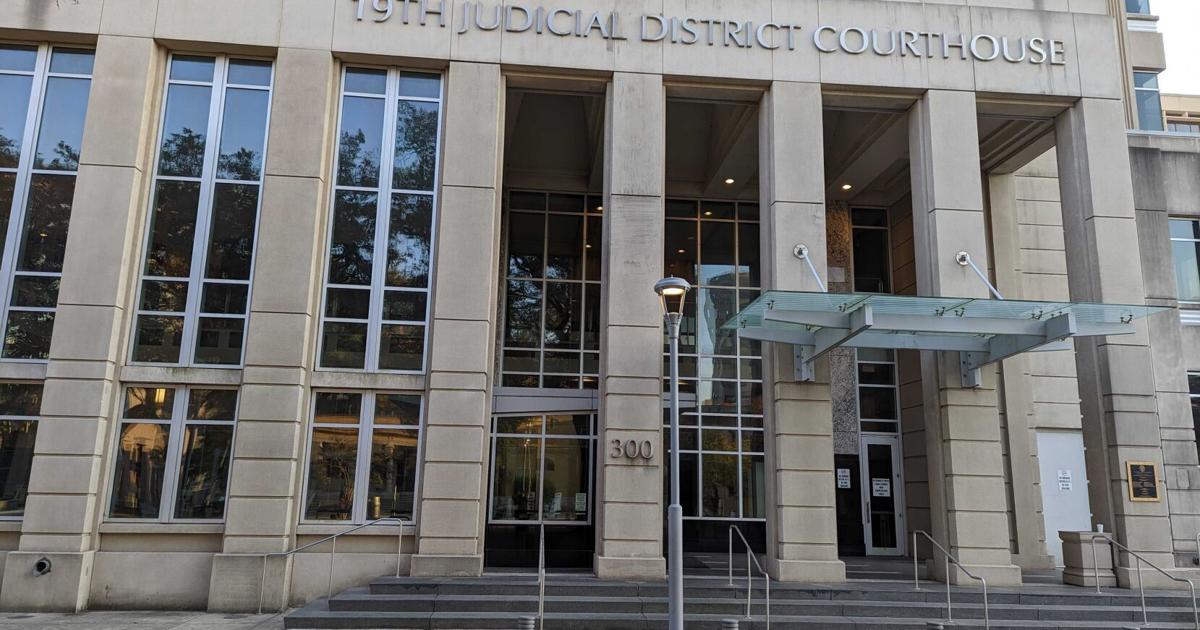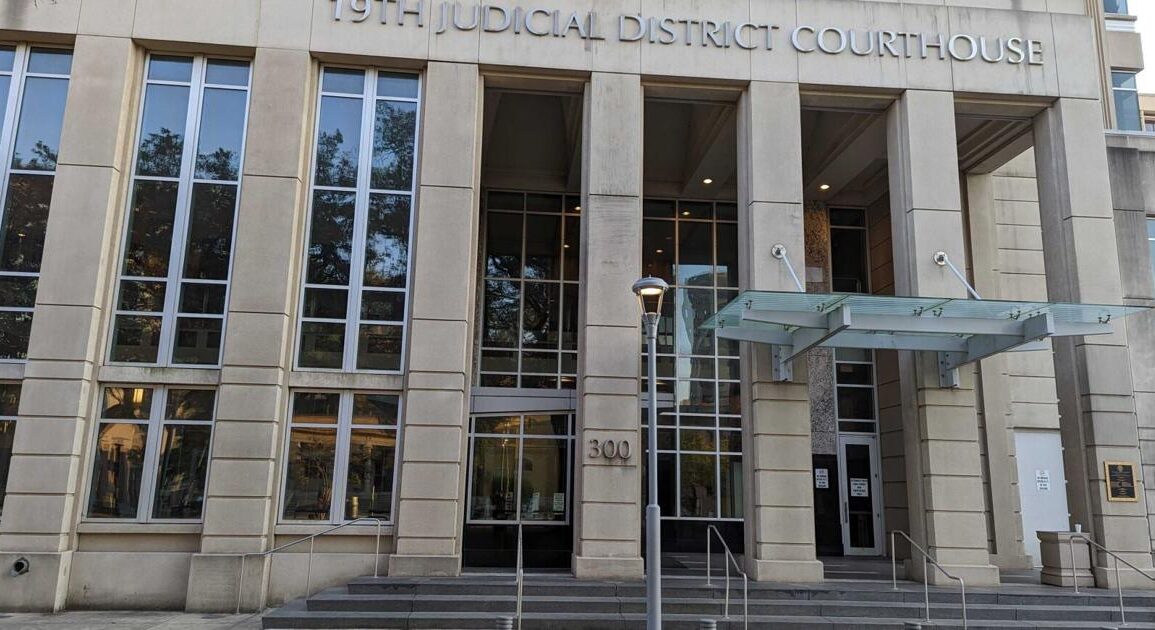
Judicial leaders are preparing to unveil a specialty court designed to focus on East Baton Rouge Parish military veterans by the end of the year.
The much-awaited veterans court has long been an aspiration at the 19th Judicial District Courthouse. For the past year, administrators have been working behind the scenes to bring the program to fruition.
During a town hall meeting this week, District Judge Ronald Johnson said the target for operation is December. Johnson has been instrumental in lobbying for a veterans court in the 19th JDC since he joined the bench in 2020, and he will preside over the forthcoming docket.
“When I see a veteran, I see courage. I see strength, dedication and sacrifice. But I also see suffering and struggling,” he told a crowd gathered for the town hall Wednesday afternoon inside the Parish library at Goodwood Boulevard. “I hope that in the near future, we’ll be able to provide services to help them.”
Johnson was joined by retired U.S. Army Col. Joey Strickland, Secretary of the Louisiana Department of Veterans Affairs, and former U.S. Air Force Brig. Gen. Michael Cushman, who is a military adviser for the state’s first veterans court in the 22nd Judicial District Court. The experts held court on the progress of the pretrial diversionary program, which is poised to become Louisiana’s fifth specialty court for veterans in the throes of the criminal justice system.
“This has been a dream of ours for many, many years,” Strickland said. “It’s been a struggle, but I think we’re beginning to see the light at the end of the tunnel now and we’re going to make this happen.”
The town hall was held just over a year after the 19th JDC was awarded a $7000,000 grant from the U.S. Department of Justice to fund the first four years of the program. East Baton Rouge has more than 23,000 veterans, according to the VA.
It’s a demographic that grapples with a host of debilitating issues like substance abuse, mental health struggles, post-traumatic stress disorder, heightened anxieties, medical comorbidity, homelessness and suicidal tendencies.
“These are, for the most part, combat veterans that are vulnerable,” Cushman said. “They’re in our court, they’ve all broken the law, they’ve all been arrested, they’ve all been in jail, they’ve all hit bottom and had horrendous impact on their families.”
State lawmakers passed legislation in 2014 enabling district courts in Louisiana to establish treatment courts for veterans charged with felonies or misdemeanors. People facing violent charges like murder, manslaughter, rape, domestic abuse or any DUIs that resulted in death are not eligible. The statute also prohibits vets who have been convicted of or have pending charges for homicide or serious sexual offenses.
“We want to connect all veterans with the benefits that they’ve earned, including those in the justice system,” said Strickland, who noted that many of the state’s rehabilitative programs for veterans are geared toward those already convicted. “If we had something like a veterans court that works hard to keep veterans out of prison instead of administering to them while they’re in prison, we wouldn’t have the struggle that we have today.”
Officials said veterans courts are modeled after an evidence-based hybrid court first launched in Buffalo, New York, in 2008. They are structured to defer criminal proceedings and suspend imposition of sentencing for participants that plead guilty in lieu of the rigorous treatment program. East Baton Rouge veterans accepted into the court will be required to undergo random drug testing, receive intensive treatment, learn recovery skills, and get mentorship from sober veterans.
The regimen has five phases and is designed to take two years to complete. It amounts to a veritable second chance for offenders, whose charges are dropped and removed from their record upon completion.
Johnson said the district originally planned to unveil its new court in July, but concerns over the program’s implementation forced organizers to return to the drawing board to regroup.
“Through our developmental process, we learned that we had to have the best practices necessary, so we delayed it to make sure that program was developed based upon those best practices and standards,” the judge indicated.
Johnson envisions 35 veterans going through the court in 2024.
“This type of program is very successful because … you address the underlying condition that brought that crime into existence,” he said. “We’re finding out that if you do not address the underlying conditions that brought it about, then the person simply repeats the type of conduct that got them in the criminal justice system in the first place.”
The Rev. Alexis Alexander, a local faith-based advocate who partners with the court and oversees a Family Support Center, recounted helping an Iraq War veteran whose fear and anxiety overwhelmed him when he was forced to enter a courtroom. When the man was sent to jail for missing a prior court date, advocates from the veterans court in St. Tammany Parish stepped in to get him released.
“You and I both know that some of our veterans suffer with such severe PTSD that a stay in the jail — solitary confinement — is very akin to a death sentence,” she told those in attendance Wednesday. “And having people in these courts to help them … it matters more than so many people know.”
This post was originally published on this site be sure to check out more of their content.







